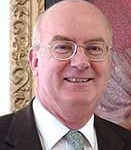This week on radio, Tim Thwaites is talking about artificial skin; the optical illusions of bowerbirds; tractor beams; earthquakes; and more [Read more…] about Earthquake forecasts, tractor beams, sticky memories and more…Tim on radio
Ancient zombie ants, liquefying your body, recovering meteorites and more. What Tim’s talking about on radio this week.
This week on radio, Tim Thwaites is talking about tracking and recovering meteorites; liquefying your body; chlorophyll that works with low energy light; ancient zombie ants; and more…
1. Desert fireballs—An intelligent camera system has been set up to track and recover meteorites in the Nullarbor. It is expected to detect about three or four of them a year. Many of these will be recovered. As debris left over from when planets were constructed, they carry a unique record of the birth of the Solar System.—Australasian Science.
This story can be found in the latest issue of Australasian Science. [Read more…] about Ancient zombie ants, liquefying your body, recovering meteorites and more. What Tim’s talking about on radio this week.
Ancient zombie ants, liquefying your body, recovering meteorites and more. What Tim's talking about on radio this week.
This week on radio, Tim Thwaites is talking about tracking and recovering meteorites; liquefying your body; chlorophyll that works with low energy light; ancient zombie ants; and more…
1. Desert fireballs—An intelligent camera system has been set up to track and recover meteorites in the Nullarbor. It is expected to detect about three or four of them a year. Many of these will be recovered. As debris left over from when planets were constructed, they carry a unique record of the birth of the Solar System.—Australasian Science.
This story can be found in the latest issue of Australasian Science. [Read more…] about Ancient zombie ants, liquefying your body, recovering meteorites and more. What Tim's talking about on radio this week.
Skipping stones, African dust, the mystery of allergies and more. Tim on radio 18 August
This week on radio, Tim Thwaites is talking about why pierced ears became inflamed; how the physics of skipping stones can improve flying; boosting your brain; using your home computer to find heavenly bodies; and more…
What Tim’s talking about on radio – 10 August
This week on radio, Tim Thwaites is talking about the extinction of Australia’s megafauna; regenerating hearts and limbs; the essence of being a sponge; childhood obesity; and more…
[Read more…] about What Tim’s talking about on radio – 10 August
What Tim’s talking about on radio – 4 August
This week on radio, Tim Thwaites is talking about the decline of tiny seaweeds in the ocean; diet and disease; orang-utan couch-potatoes; high tech odour prevention; and more…
[Read more…] about What Tim’s talking about on radio – 4 August
What Tim's talking about on radio – 4 August
This week on radio, Tim Thwaites is talking about the decline of tiny seaweeds in the ocean; diet and disease; orang-utan couch-potatoes; high tech odour prevention; and more…
[Read more…] about What Tim's talking about on radio – 4 August
Can we feed nine billion people by 2050?

Chris Leaver, University of Oxford
The world’s population has more than doubled in the past 50 years and the relative abundance of food has kept pace, with the poorest benefiting most. Yet one billion people are malnourished and live below the poverty line.
Eye drug finds new life in Geelong diabetes trial
People with diabetes invited to participate in trial
Media release: Geelong, Friday 23 April 2010
Modern drugs can stabilise adult onset diabetes but with some serious side effects. A Geelong-based company, Verva Pharmaceuticals, has a new approach – a drug used for many years to treat eye disease. In animal testing, the drug restored sensitivity to insulin. But will it be effective and safe in people? [Read more…] about Eye drug finds new life in Geelong diabetes trial
World’s tiniest scales
Measuring the contents of a single cell: the nano-machinery of life
Scientists are developing a tiny set of scales that will be capable of weighing each of the 100 million or so different proteins in a human cell.
